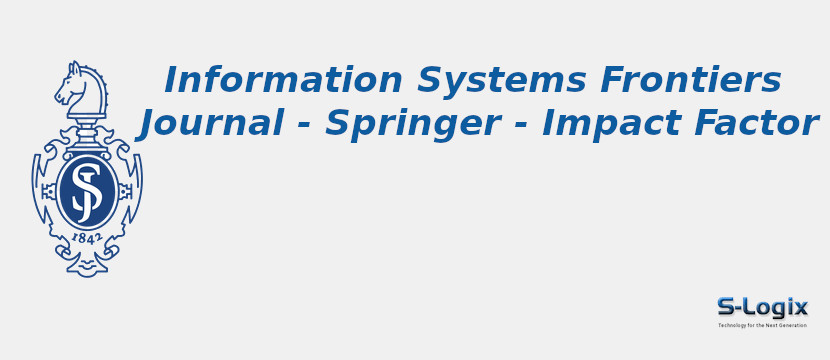Journal Home: Journal Homepage
Editor-in-Chief: Ram Ramesh
Print ISSN: 1387-3326
Electronic ISSN: 1572-9419
Abstracting and Indexing: Science Citation Index Expanded, Scopus.
Imapct Factor 2024: 8.3
Subject Area and Category: Computer Sciences, Library and Information Science, Electronics and Telecommunications, Mathematics
Publication Frequency: Bimonthly
H Index: 94
Q1: Computer Networks and Communications
Q2:
Q3:
Q4:
Cite Score: 19.1
SNIP: 2.482
Journal Rank(SJR): 2.002
Latest Articles: Latest Articles in Information Systems Frontiers
Guidelines for Authors: Information Systems Frontiers Author Guidelines
Paper Submissions: Paper Submissions in Information Systems Frontiers
Publisher: Springer US
Country: Netherlands
